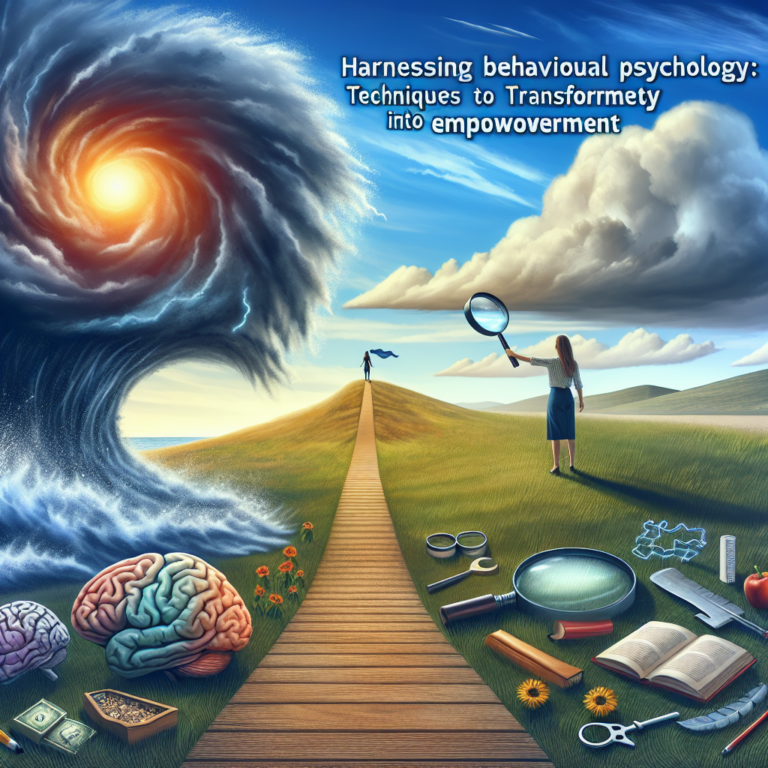
Navigating Schizophrenia Care: An Ultimate Guide to Treatment Strategies
Introduction
Schizophrenia is a complex and often misunderstood mental health condition, affecting approximately 1 in 100 people globally. Individuals living with schizophrenia may experience a tapestry of symptoms that can disrupt their thoughts, emotions, and daily functioning. For families and caregivers, navigating schizophrenia care presents a myriad of challenges and decisions. This deep dive into "Navigating Schizophrenia Care: A Comprehensive Guide to Treatment Strategies" aims to illuminate the treatment landscape, equip families with knowledge, and help individuals facing this condition achieve a better quality of life.
Understanding Schizophrenia: A Brief Overview
Before delving into treatment strategies, it’s crucial to understand what schizophrenia entails. The condition often manifests through a combination of sensory distortions, disorganized thinking, and difficulty in differentiating between reality and imagination. Common symptoms can include hallucinations, delusions, and changes in behavior that can be profoundly disorienting.
Case Study 1: John’s Journey
John, a 28-year-old, first experienced symptoms of schizophrenia during his college years. Struggling with hallucinations and severe anxiety, he found it difficult to maintain relationships and academic performance. With the right treatment strategy, John now advocates for mental health awareness, illustrating that recovery is possible.
Navigating Treatment Strategies
The journey of "Navigating Schizophrenia Care: A Comprehensive Guide to Treatment Strategies" begins with understanding the cornerstone of treatment: a personalized, multi-faceted approach.
1. Medication Management
One of the primary pillars in the treatment of schizophrenia is pharmacotherapy. Antipsychotic medications, divided into two categories—typical and atypical—are often prescribed to manage symptoms.
| Medication Type | Examples | Common Side Effects |
|---|---|---|
| Typical | Haloperidol | Drowsiness, weight gain |
| Atypical | Risperidone, Quetiapine | Weight gain, metabolic syndrome |
The Role of Medication
Medication often acts as the first line of defense against the debilitating symptoms of schizophrenia. However, medication management must be approached judiciously and adapted to each individual’s needs, often requiring a trial-and-error approach to find the most effective regimen.
2. Psychotherapy
Complementing medication with therapy can foster a more holistic recovery. Evidence-based practices like Cognitive Behavioral Therapy (CBT) have proven particularly beneficial.
Case Study 2: Maria’s Transformation
Maria struggled for years without therapeutic support, leading to frequent relapses. After integrating CBT into her care plan, she learned coping mechanisms and dealt effectively with her symptoms. Therapy empowered her to reshape negative thought patterns, illustrating the power of psychotherapy alongside medication.
3. Family Education and Support
Family involvement is a critical component when navigating schizophrenia care. Educating family members can reduce stigma and enhance the support network that individuals rely upon.
Tools for Family Support
- Family Therapy: Helps facilitate communication and address family dynamics.
- Support Groups: These create a community of individuals facing similar challenges and provide a platform for sharing experiences and strategies.
4. Lifestyle Modifications
Incorporating lifestyle changes can significantly influence the overall quality of life for those battling schizophrenia. Regular physical activity, a balanced diet, and structured routines help in managing symptoms and maintaining consistent care.
| Lifestyle Factor | Recommendations |
|---|---|
| Diet | Focus on whole foods, minimize sugars |
| Exercise | 30 minutes of aerobic activity daily |
| Sleep Hygiene | Maintain a regular sleep schedule |
The Impact of Lifestyle
Engagement in community activities and social interactions fosters a sense of belonging and reduces feelings of isolation. As individuals become more mobile and interactive in their environment, it paves the way for personal agency.
5. Holistic and Complementary Approaches
Alternative therapies, while not replacements for traditional treatment, can serve as valuable adjuncts. Mindfulness, yoga, and art therapy are some approaches that have garnered attention for their positive impacts on mental well-being.
Case Study 3: Sam’s Holistic Approach
Sam discovered that incorporating yoga and meditation into his daily routine significantly reduced his anxiety levels. By addressing his mental health through physical means, he cultivated a greater sense of self-awareness, highlighting the importance of integrated care strategies in managing schizophrenia.
The Importance of Continuous Evaluation
Navigating schizophrenia care is not a one-time endeavor but an ongoing process requiring regular assessment and adjustment. Continuous evaluation (CE) can help adapt the treatment plan based on the individual’s changing needs.
Engagement with Healthcare Providers
Regular consultations with psychiatrists, therapists, and case managers can ensure that treatment remains aligned with personal goals, leading to improved outcomes. Open dialogue about medication side effects and overall wellness can lead to adaptations that enhance effectiveness.
Conclusion
Navigating schizophrenia care is undoubtedly multifaceted, necessitating a collaborative approach that encompasses medication management, psychotherapy, support systems, lifestyle modifications, and continuous evaluation. Those affected can lead fulfilling lives when the right strategies are employed and tailored to individual needs.
By fostering understanding and empathy while advocating for comprehensive care, we can pave the way for recovery and resilience. Remember, you are not alone on this journey – help and hope are always within reach.
FAQs
1. What is the first step for someone diagnosed with schizophrenia?
A: The first step typically involves consulting a mental health professional for a comprehensive evaluation and initiating medication management.
2. How long does it take for medication to work for schizophrenia?
A: It can take several weeks for antipsychotic medications to show effectiveness, with some individuals experiencing improvements within a few days.
3. Can people with schizophrenia lead normal lives?
A: Yes, with appropriate treatment plans, support, and coping mechanisms, many individuals with schizophrenia can achieve a fulfilling life.
4. Are there any natural remedies for schizophrenia?
A: While diet and lifestyle changes can aid overall well-being, they should complement traditional treatments rather than replace them.
5. How can family members support a loved one with schizophrenia?
A: Family members can support by educating themselves on the condition, listening actively, participating in support groups, and encouraging treatment adherence.
By fully embracing the journey of "Navigating Schizophrenia Care: A Comprehensive Guide to Treatment Strategies," individuals and families can progress toward more hopeful and informed futures.

















